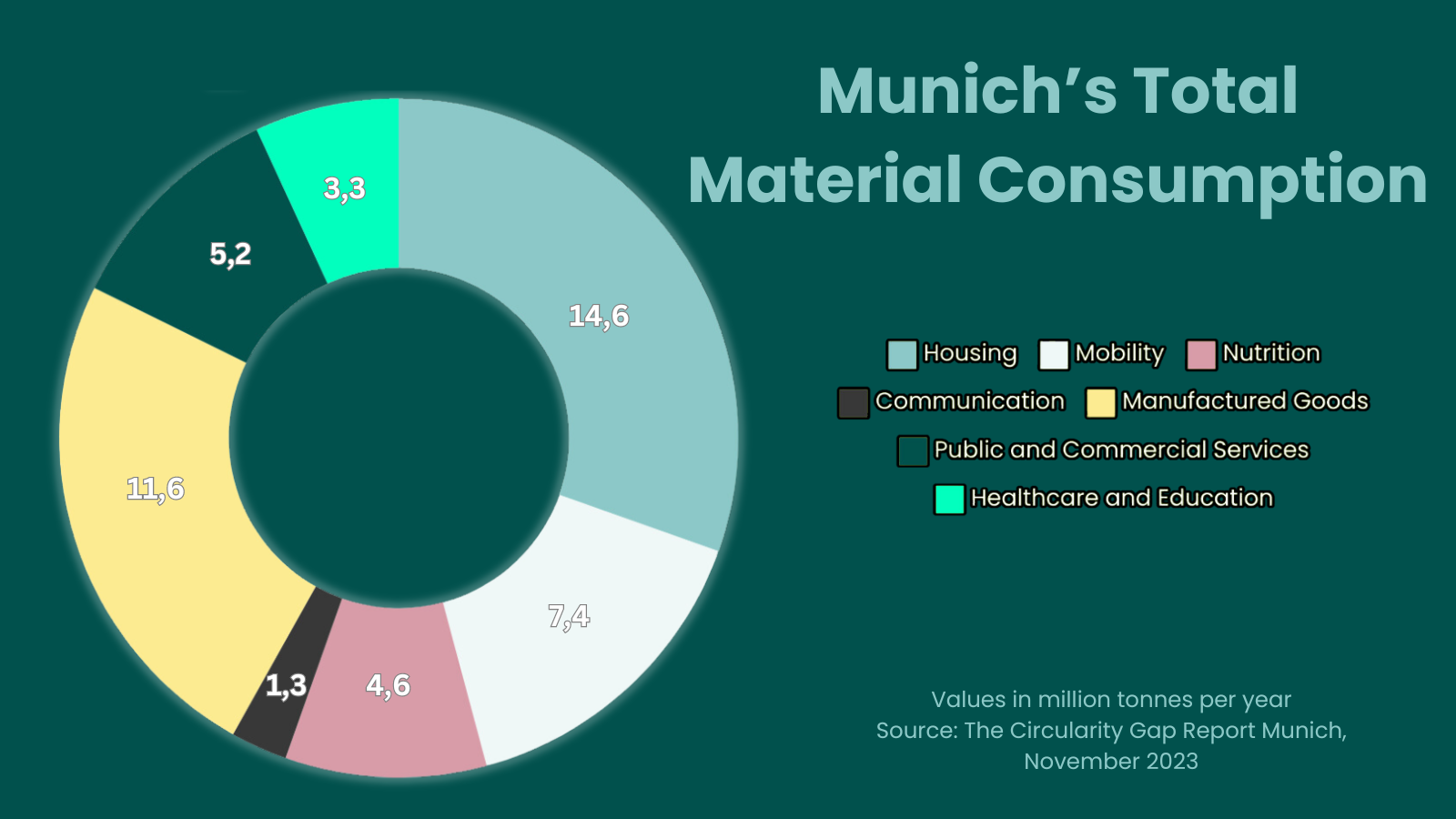“How much virgin material do you use per year?” Over the last few weeks, I have asked this question to a few people. It turned out that everyone – even those from the sustainability community – was caught on the wrong foot. Their answers were substantially too low.
The correct answer depends on the geography we’re looking at:
- The per capita virgin material consumption for Munich is 32 tonnes.
- For Germany it is 21 tonnes, similar to the high-income country average.
- Middle-income countries like China, Brazil, and Egypt have an average footprint of 17 tonnes per year.
- The resource consumption in lower-income countries like Bangladesh, Nigeria, and the Philippines is at 5 tonnes per year.
Almost everyone is surprised. Where do these high numbers come from?
The question about personal virgin material consumption suggests we have a personal connection to it. But that is mostly not true. A city or country’s total material consumption is hidden from the people. I don’t know how many resources the factory nearby consumes. I don’t know how many resources the construction works in our streets consume. And most people don’t know that it takes 1,400 liters of water to produce a 250g package of butter.
There is another explanation for Munich’s case: Its strong industrial activities are resource-heavy, energy-savvy, and have a high export share. The resulting high income levels of Munich citizens drive higher consumption rates and have a higher environmental impact.
However, we cannot act resource-aware if we don’t know the drivers. So, let’s have a closer look at them. Munich consumes 48 million tonnes of material annually, or 32 tonnes per person:
- The construction, maintenance and renovation of housing with materials such as concrete, steel and timber accounts for 14.6 million tonnes.
- The manufactured goods sector needs 11.6 million tonnes to produce furniture, clothing, and textiles.
- Mobility, with 7.4 million tonnes, includes the materials needed to build cars and the fossil fuels to power them.
- Nutrition, with 4.6 million tonnes, covers the agricultural products that make up our food.
- The other three areas – public & commercial services, healthcare & education, and communication – are mostly based on infrastructure in the form of buildings, equipment and the energy used to power them.

A healthy level is estimated at around 8 tonnes per person per year. This is due to the biodiversity loss caused by resource extraction, the energy needed to process materials, and the toxicity of man-made materials.
As a bgreen leader, what can I do about it? From my three relevant roles – as a consumer, professional, and citizen – let’s focus on business options for me as a professional:
- Use less: How can we be more efficient in producing our products? You might save resources and costs. Like OpenFunk with its blender without a jar.
- Use again: Replace virgin materials with recycled or reused materials. You might even spend less money on existing materials than on new materials. Like Freitag with bags made of discarded truck tarps.
- Use what growths: Switching to renewable materials avoids planetary boundaries. If you mind biodiversity and regeneration rates, growth can be healthy. Like Komrads with sneakers made of apple skin.
- Use together: Facilitating the sharing and reselling of products itself can be a business case. Could it be done faster, more convenient, or cheaper? Like Vaude with its second-hand and rental shop.
- Use longer: In times of material scarcity, repairing and refurbishing products will be more attractive again. Enabling and delivering longevity might be a good business case. Like Herman Miller with a 12 year warranty on office chairs.
It may be an irony of sustainability that Munich people enjoy not only the material-savvy city life but also life in the mountains and at the lakes. Let’s bring this balance of prosperity and the planet from private life to business life.
Sources: The Circularity Gap Report, January 2024 & The Circularity Gap Report Munich, November 2023
